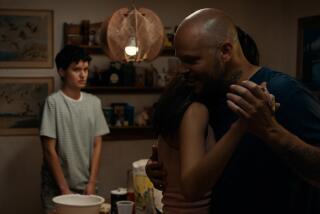Book review: ‘A Death in Summer’ by Benjamin Black
- Share via
It starts with a dead man. Rich, powerful and headless, Richard Jewell is sprawled across his desk, his hands still grasping one of his well-polished shotguns.
There is no small amount of glee in Benjamin Black’s description of the scene — “he lay with a bit of jawbone and a few teeth and a bloodied stump of spine, all that was left of what had been his head” — and that’s partly because he’s the pulpy alter-ego of Irish novelist John Banville. Known for his layered, intelligent writing, the Man Booker Prize-winning author sets aside literary ambitions and dons a black fedora when he becomes Benjamin Black, detective novelist.
“A Death in Summer,” Black’s fourth book featuring pathologist Garret Quirke, is a swift, hopscotching murder mystery set in postwar Ireland. Quirke is called in on the Jewell case by Detective Inspector Hackett, and he can’t help but get involved. He and Hackett believe Jewell’s death was not a suicide, and they spend much of the book working together. They’re similar and different; both are middle-aged, but Hackett is plump and rumpled, while Quirke is tall and dissolutely handsome. In one of Black’s previous novels, Quirke went to rehab, but here he starts drinking again; it’s as if the genre demands that he lift a glass.
Black slides between the pair’s points of view, jagging the story first one way and then another. Sometimes we know less than the investigator, sometimes more. Although Hackett has a hunch that Quirke is being drawn into Jewell’s widow’s sphere, he doesn’t realize how much — but we readers do.
The primary suspects in Jewell’s murder, if that’s what it is, include his beautiful French widow, Françoise, the thuggish horse trainer who discovered his body and a business rival who has ostentatiously adopted the trappings of an American cowboy.
The story branches out into the lives of adjacent characters: lovers and exes, household help, the rival’s abrasive son, and Jewell’s high-strung half-sister. Quirke’s savvy yet closed-off daughter, Phoebe, is curious about the case, even more so after he sets her up with his assistant at the pathology lab, David Sinclair.
It’s a counterintuitive Dublin: instead of lush greens and fog, there is an unrelenting summer heat wave, leaving the city full of dust and sweat. Set about 10 years after the end of World War II, Dublin comes alive with specific details: humping traffic jams, municipal employees and dangerous alleys, garden walks, wealthy country estates and entrenched racism.
Jewell was Jewish, and while he was completely uninterested in religion there is some question as to whether it played a role in his death. Despite the atrocities of the recent war, Jewishness is a signal of otherness in mid-’50s Dublin. Equally sinister are the ties between the above-ground and the underground, businesses and criminals, and a Church orphanage that was home to Quirke and the suspect horseman.
Unpacking the past is a straightforward business in this book. When something merits explaining, Black interrupts one character’s conversation with the thoughts of another, full of exposition, letting the second character’s attention surface again mid-sentence. This may be a little inelegant for a literary guy like Banville, but this is Black, after all, who is writing a page turner.
If there is something top-shelf about the book, it can be found in the descriptions, and in the complexity of its characters. Quirke’s return to drinking is treated as an unwise indulgence, but not a fall; his daughter is a curious blend of timid and brave; the assistant pathologist is likable yet has roguish tendencies; the business rival’s arrogance and voracity have a unique flavor. Even Françoise, cast in the role of the rich widow, has nuance and shadings, conflicting motivations and love interests.
“A Death in Summer” is a beach read for the brainy, with a backdrop of sweltering Dublin to remind readers to go for a dip every now and then.
More to Read
Sign up for our Book Club newsletter
Get the latest news, events and more from the Los Angeles Times Book Club, and help us get L.A. reading and talking.
You may occasionally receive promotional content from the Los Angeles Times.








